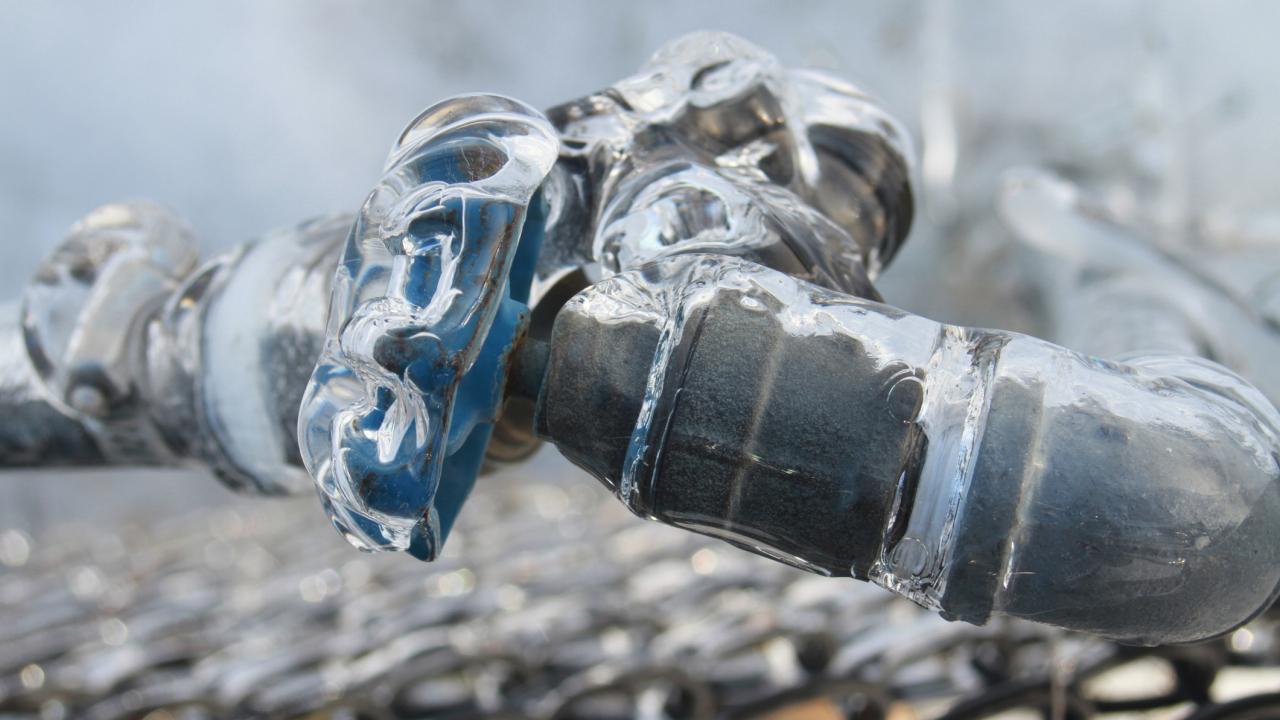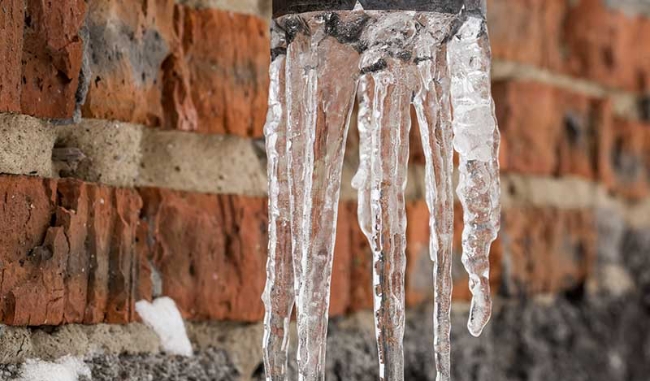Tips to Prevent Frozen Pipes in Winter: Pro Tips
Tips to Prevent Frozen Pipes in Winter: Pro Tips
Blog Article
What are your thoughts with regards to How to prepare your home plumbing for winter weather?

Winter can wreak havoc on your pipes, specifically by freezing pipes. Right here's exactly how to prevent it from taking place and what to do if it does.
Introduction
As temperature levels decline, the risk of frozen pipes rises, potentially causing pricey repair services and water damage. Comprehending just how to avoid icy pipelines is vital for house owners in cool environments.
Avoidance Tips
Shielding at risk pipelines
Cover pipelines in insulation sleeves or utilize warm tape to shield them from freezing temperatures. Concentrate on pipelines in unheated or outside areas of the home.
Heating strategies
Maintain interior areas appropriately heated, especially areas with plumbing. Open closet doors to permit warm air to flow around pipes under sinks.
Just how to identify frozen pipelines
Try to find reduced water flow from faucets, unusual smells or sounds from pipelines, and noticeable frost on revealed pipes.
Long-Term Solutions
Structural modifications
Think about rerouting pipelines far from outside wall surfaces or unheated areas. Include additional insulation to attics, cellars, and crawl spaces.
Updating insulation
Buy high-grade insulation for pipelines, attics, and wall surfaces. Proper insulation helps preserve consistent temperatures and reduces the danger of icy pipes.
Shielding Outdoor Plumbing
Yard tubes and outside taps
Disconnect and drain pipes garden pipes prior to wintertime. Set up frost-proof spigots or cover outside taps with insulated caps.
Recognizing Icy Pipelines
What triggers pipelines to freeze?
Pipelines freeze when revealed to temperatures below 32 ° F (0 ° C) for expanded periods. As water inside the pipes freezes, it broadens, putting pressure on the pipeline wall surfaces and potentially causing them to break.
Threats and damages
Icy pipelines can result in water system interruptions, building damage, and expensive repair services. Ruptured pipelines can flooding homes and create substantial architectural damage.
Indicators of Frozen Water Lines
Determining frozen pipes early can stop them from rupturing.
What to Do If Your Pipelines Freeze
Immediate actions to take
If you suspect frozen pipelines, keep taps open up to soothe pressure as the ice thaws. Use a hairdryer or towels soaked in warm water to thaw pipes slowly.
Conclusion
Avoiding icy pipelines requires positive procedures and fast reactions. By understanding the reasons, indications, and preventive measures, property owners can secure their pipes during winter.
Helpful Tips to Prevent Frozen Pipes this Winter
UNDERSTANDING THE BASICS: WHY PIPES FREEZE AND WHY IT’S A PROBLEM
Water freezing inside pipes is common during the winter months, but understanding why pipes freeze, and the potential problems it can cause is crucial in preventing such incidents. This section will delve into the basics of why pipes freeze and the associated problems that may arise.
THE SCIENCE BEHIND FROZEN PIPES
When water reaches freezing temperatures, it undergoes a physical transformation and solidifies into ice. This expansion of water as it freezes is the primary reason pipes can burst. As the water inside the pipe freezes, it expands, creating immense pressure on the walls. If the pressure becomes too great, the pipe can crack or rupture, leading to leaks and water damage.
FACTORS THAT CONTRIBUTE TO PIPE FREEZING
Low Temperatures: Extremely cold weather, especially below freezing, increases the risk of pipes freezing. Uninsulated or Poorly Insulated Pipes: Pipes located in unheated areas, such as basements, crawl spaces, or attics, are more prone to freezing. Insufficient insulation or lack of insulation altogether exacerbates the problem. Exterior Wall Exposure: Pipes running along exterior walls are susceptible to freezing as they encounter colder temperatures outside. Lack of Heating or Temperature Regulation: Inadequate heating or inconsistent temperature control in your home can contribute to frozen pipes. PROBLEMS CAUSED BY FROZEN PIPES
- Pipe Bursting: As mentioned earlier, the expansion of water as it freezes can cause pipes to burst, resulting in significant water damage.
- Water Damage: When pipes burst, it can lead to flooding and water damage to your property, including walls, ceilings, flooring, and personal belongings.
- Structural Damage: Prolonged exposure to water from burst pipes can compromise the structural integrity of your home, leading to costly repairs.
- Mold and Mildew Growth: Excess moisture from water damage can create a favorable environment for mold and mildew growth, posing health risks to occupants.
- Disrupted Water Supply: Frozen pipes can also result in a complete or partial loss of water supply until the issue is resolved.
WHY CERTAIN PIPES ARE MORE PRONE TO FREEZING
- Location: Pipes located in unheated or poorly insulated areas, such as basements, crawl spaces, attics, or exterior walls, are at higher risk of freezing.
- Exterior Pipes: Outdoor pipes, such as those used for irrigation or exposed plumbing, are particularly vulnerable to freezing as they are directly exposed to the elements.
- Supply Lines: Pipes that carry water from the main water supply into your home, including the main water line, are critical to protect as freezing in these lines can affect your entire plumbing system.
- Underground Pipes: Pipes buried underground, such as those connected to sprinkler systems or outdoor faucets, can be susceptible to freezing if not properly insulated.
https://busybusy.com/blog/helpful-tips-to-prevent-frozen-pipes-this-winter/

Do you like reading about How To Avoid Freezing Pipes? Try to leave feedback down the page. We would be pleased to see your reactions about this posting. We hope that you come back again before long. Loved our blog posting? Please quickly share it. Help somebody else discover it. Thanks a bunch for being here. Come back soon.
Click Here Report this page